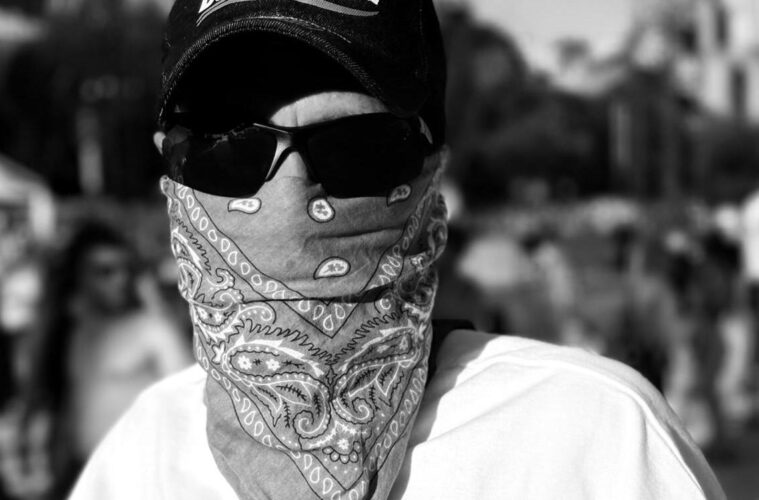Il meme artist dell’elettronica, Marco Cariola, si racconta in una intervista esclusiva.
Vi è mai capitato di imbattervi in un meme, la ormai consolidata forma di comunicazione web fatta di immagini e frasi, e pensare che “cavolo, è proprio vero quello che c’è scritto!”?
C’è qualcuno che, attraverso i propri meme racconta una storia, denuncia delle storture, conduce una simpatica protesta silenziosa, e colpisce dritto al cuore degli appassionati.
Non solo di meme vive questa entità: attraverso una conoscenza approfondita dell’informatica, si spinge nelle analisi delle pagine dei DJ e produttori più famosi del mondo, indagando sulla veridicità della consistenza dei loro follower. Che ahinoi, spesso valgono più della qualità musicale.
Abbiamo intervistato Marco Cariola, incuriositi dal personaggio che sta spopolando sui social con i suoi video ironici, e spesso satirici.
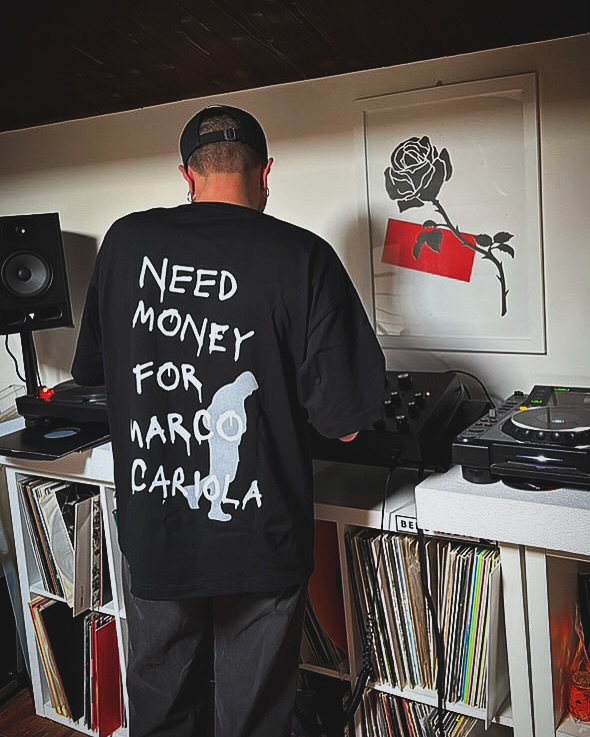
Eroe mascherato dell’elettronica, nessuno sa chi sia, ma sicuramente dietro il faccione in primo piano di Roberto Da Crema c’è una persona vera, che sente quello che vive e dice quello che pensa. Che si emoziona a parlare con i DJ che stima e si incazza di fronte ad alcuni meccanismi ingiusti del mainstream. Cercando di portare avanti il suo punto di vista.
Anche noi leggiamo i suoi contenuti e, al di là delle risate amare che ci strappano ogni volta, molto spesso ci trovano d’accordo.
Ciao Marco, o chiunque tu, o voi siate. Benvenuto su Parkett. Prima di tutto: come stai?
Ciao! Intanto grazie davvero per l’invito — è un piacere essere qui. Questa è in assoluto la mia prima intervista, quindi sono doppiamente felice che avvenga proprio con Parkett. È una sorpresa, in senso bello e pieno: non me lo aspettavo, ma sono contento di potermi raccontare in questo contesto.
Parlaci un po’ di questa idea. Come nasce Marco Cariola? Quando è scoccata la scintilla che ha fatto avviare il motore?
Marco Cariola nasce un po’ per caso, un po’ per istinto, ma anche per esigenza. Il vero inizio risale al periodo della prima pandemia: c’era tempo libero e un grande bisogno di leggerezza. All’inizio il progetto aveva un altro nome, era più un gioco che altro. Mi divertivo a modificare l’audio di alcuni video di esibizioni di DJ trovati su YouTube. Il risultato finale era spesso esilarante.
Ho iniziato a pubblicare questi video su Facebook: è lì che è nata davvero l’idea. La pagina Instagram è arrivata solo anni dopo, quando ho capito che il progetto stava prendendo una direzione più definita e meritava uno spazio dedicato anche lì.
leggi anche: “David Guetta: meglio essere DJ o intrattenitore?”
In tutti questi anni ho sempre fatto tutto da solo: dalla ricerca dei contenuti alle modifiche audio e video. È un lavoro artigianale, ma proprio per questo mi rappresenta al 100%. Con il tempo, si è creato un bellissimo rapporto tra me e chi mi segue. Tanto che oggi, spesso e volentieri, sono proprio i follower a inviarmi materiale: video, spunti, chicche da poter rielaborare e pubblicare. È diventata una forma di collaborazione spontanea, quasi una community che si diverte a smascherare, ridere e riflettere insieme.
Tra questi follower, negli ultimi tre mesi circa, c’è un ragazzo che ha attirato la mia attenzione in modo particolare. Non solo per la scelta dei contenuti che mi inviava, ma perché li modificava già in perfetto stile “Cariola”, con la stessa ironia, la stessa follia, lo stesso spirito tagliente che contraddistingue la pagina. È stato tutto molto naturale, spontaneo: così è entrato a far parte del progetto.
Perciò oggi posso dire di non essere più solo in questa cosa. Ed è bello vedere come da una semplice pagina possa nascere una collaborazione vera, fatta di intuito condiviso e voglia di divertirsi restando coerenti con un certo tipo di visione.
Ah, ti racconto anche un episodio divertente proprio degli inizi. Era il periodo in cui i club erano chiusi, non si poteva ballare, l’atmosfera surreale. Così, per gioco, creai un flyer di un fantomatico party in un Autogrill per il Capodanno 2020, con tanto di evento su Facebook. Inserii nomi di DJ reali accanto ad altri completamente inventati — alcuni erano personaggi della TV.
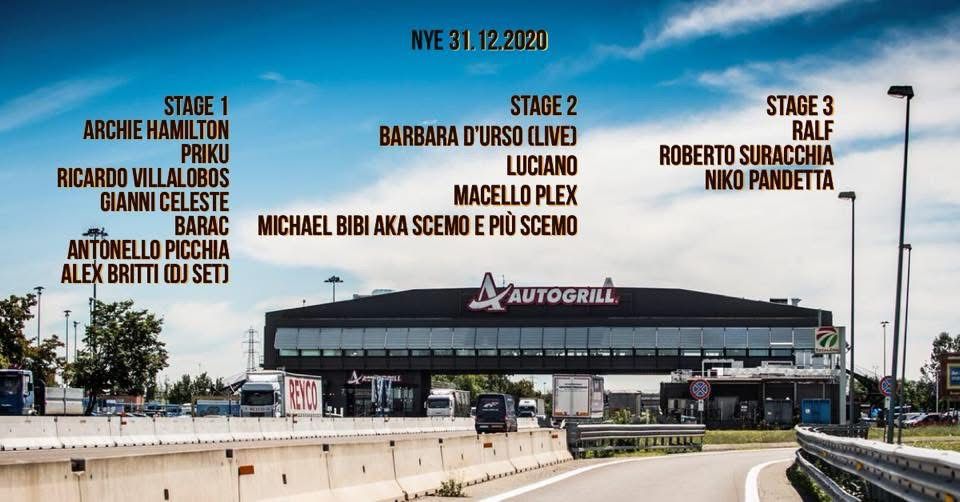
“La locandina del fantomatico Capodanno in Autogrill 2020, con relativa line-up”
Non chiedermi come, ma quell’evento diventò virale. Migliaia di persone cliccarono “Parteciperò” e iniziarono a condividerlo ovunque. La cosa assurda è che mi scrissero anche dei veri gruppi di PR chiedendomi come lavorare all’evento, come entrare nello staff. In tanti non avevano capito che fosse tutto inventato. È lì che ho capito il potenziale della satira nel nostro ambiente… e quanto, a volte, la realtà superi la fantasia!
Cosa ti motiva più di tutto? C’è un preciso obbiettivo dietro questo tipo di comunicazione o è un progetto nato per passione e voglia di divertirsi?
La motivazione più grande, in realtà, è molto semplice: mi diverte. Ma soprattutto nasce da una passione smisurata per la musica elettronica e per il clubbing — quello vero, però. Quello fatto di suono, sudore, luci basse e condivisione reale. È un mondo che mi ha formato, mi ha ispirato e mi ha fatto sentire parte di qualcosa.
Questo progetto è nato così, senza grandi strategie, senza piani a lungo termine. All’inizio c’era solo la voglia di giocare, di sperimentare, di liberare certe idee che avevo in testa da tempo e che non trovavano uno spazio “serio” dove esistere.
Poi, strada facendo, mi sono accorto che quel linguaggio così diretto, ironico e a volte paradossale riusciva a comunicare davvero con le persone. Non è solo intrattenimento: è anche un modo per dire cose vere, senza filtri, ma con leggerezza. E questa è una cosa che oggi, secondo me, manca un po’ — la libertà di dire qualcosa di scomodo senza prendersi troppo sul serio.
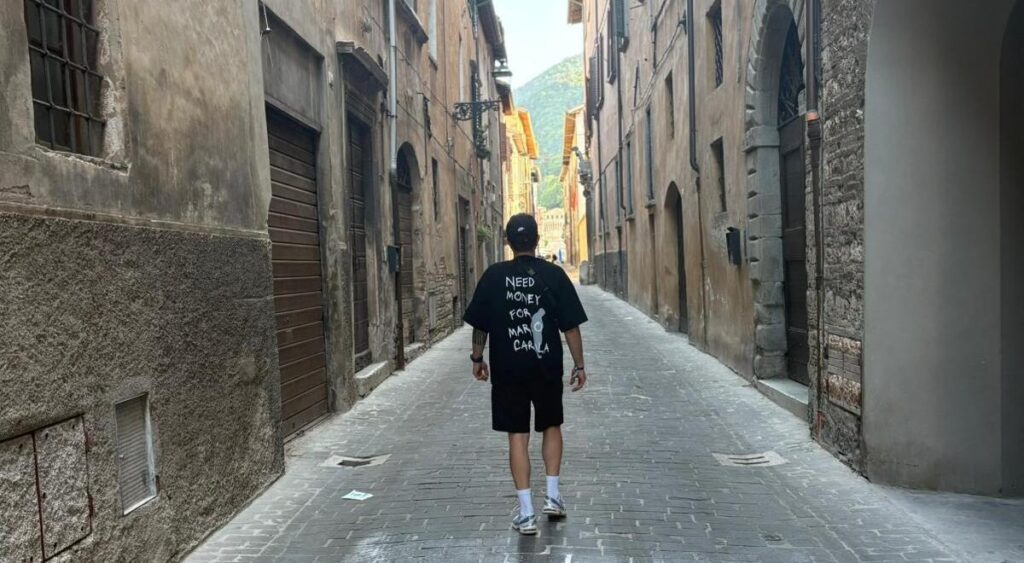
E ti dico una cosa, mi emoziono, e non sto scherzando. Spesso mi ritrovo a parlare con artisti che seguo da una vita, che stimo profondamente, e con cui grazie a questa pagina ho la fortuna di confrontarmi. Mi supportano, mi mandano Wetransfer con i loro EP, e io gli mando la foto del loro vinile che ho a casa da anni. È surreale, ma bellissimo.
A volte sto al telefono, magari con uno di loro, e ho gli occhi lucidi. La mia compagna mi guarda e mi fa:
“Ma che stai a fa? Ma sei normale?”
E io sorrido, perché in fondo forse no, non sono del tutto normale. Ma va bene così.
Quindi sì, è nato per passione e voglia di divertirmi, ma oggi ci vedo anche un valore più profondo.
Non ho un “preciso obiettivo” nel senso classico, ma se riesco a far sorridere qualcuno, o a fargli dire “Oh, l’ha detto!”, allora so che ha senso continuare.
C’è anche la volontà di sensibilizzare una certa parte di pubblico con i tuoi contenuti?
Sì, decisamente. Anche se tutto nasce dal divertimento e dall’amore per la musica, c’è anche una volontà più profonda: quella di provare a sensibilizzare una certa parte di pubblico. Non voglio fare la morale a nessuno, però mi piace l’idea di poter accendere una lampadina, far riflettere, magari anche solo per qualche secondo, chi guarda o ascolta.
Con Marco Cariola cerco di mettere in luce certe dinamiche del mondo del clubbing e della musica elettronica — situazioni un po’ grottesche — con ironia ma anche con un fondo di verità. E spesso mi rendo conto che molti si riconoscono in quello che racconto, o comunque colgono il messaggio dietro alla risata.
Quindi sì, mi interessa intrattenere, ma mi interessa anche stimolare una certa consapevolezza
Qual è l’aspetto della degenerazioni che racconti che più ti infastidisce? Il quadro che stai tracciando non è dei migliori, anzi è impietoso. Ma c’è qualcosa che proprio non sopporti?
Guarda, più che infastidirmi mi dispiace. Perché il mondo del clubbing — quello vero, come dicevamo prima — è una cosa meravigliosa. È cultura, è libertà, è condivisione. Ma oggi, purtroppo, sta diventando sempre più spesso una caricatura di sé stesso.
Quello che proprio non sopporto è la spettacolarizzazione forzata. Il clubbing ridotto a vetrina, a contenuto da postare, a outfit studiato nei minimi dettagli, ma con zero attenzione per la musica. Quando vedo un DJ più impegnato a farsi il video che a far suonare bene un impianto, o un pubblico lì solo per farsi vedere e non per vivere davvero il momento… ecco, lì si rompe la magia.
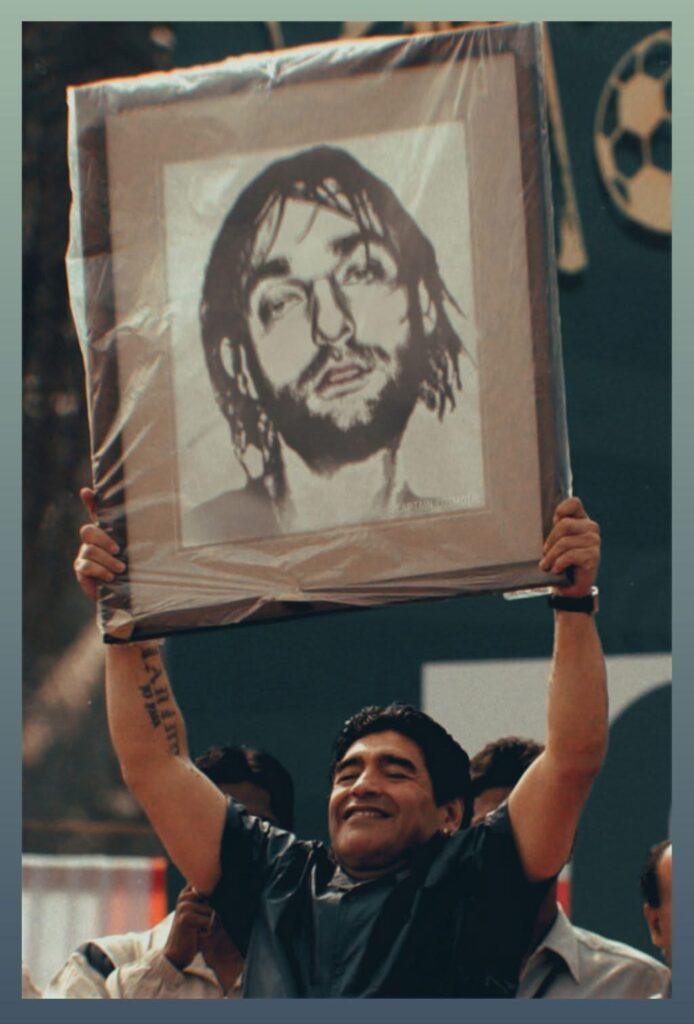
Mi fa rabbia vedere che chi merita davvero, chi ha talento, cultura musicale, passione e capacità tecniche, spesso rimane ai margini o addirittura a guardare. Mentre altri, senza arte né parte, fanno date in giro per il mondo e incassano cifre folli. È una distorsione totale del valore.
E poi c’è una cosa che per me è proprio insopportabile: chi si esibisce con set pre-registrati. È sinonimo di incapacità, punto. È una mancanza di rispetto nei confronti del pubblico e di chi, invece, si sbatte ogni sera per suonare davvero, per improvvisare, rischiare, sbagliare. Perché è lì che sta la verità della musica.
Non posso non citare anche tutta la questione dei fake followers, delle carriere costruite su numeri falsi, metriche gonfiate, immagini curate a tavolino. È tutto fumo negli occhi. E alla fine ci rimette il pubblico, ma anche il sistema in generale: se continuiamo a premiare l’apparenza e non la sostanza, poi non possiamo stupirci se ci ritroviamo circondati dal vuoto.
E aggiungo: mi infastidisce tantissimo questa nuova ondata di remix di brani italiani in chiave afro house. Senza senso, spesso imbarazzanti. Lo stesso vale per la moda dilagante di autopromuoversi con video in cui si finge di suonare su mixer spenti, senza nemmeno un cavo collegato. È un’offesa all’intelligenza umana.
Il problema è che molte nuove generazioni vedono questi contenuti e pensano che questo sia il modo giusto per farsi conoscere. Quindi imitano tutto, senza nemmeno capire cosa stanno replicando. Non molto tempo fa ho discusso con un DJ, anche abbastanza conosciuto, proprio per questo motivo. Si è giustificato dicendo: “Eh, funziona così adesso. Faccio il video in una bella location, con la console spenta, sperando che il contenuto diventi virale e che traini anche la mia release.”
A suo dire, era una scelta del management.
Mah… se dobbiamo sacrificare la credibilità sull’altare dell’algoritmo, allora c’è qualcosa che davvero non va.
Ma attenzione: qualcosa di buono c’è, anzi tanto, per fortuna.
In Italia esistono ancora tante realtà che meritano davvero. Fatte di ragazzi appassionati, con gusto, cultura musicale, voglia di ricerca. Che si sbattono per fare le cose per bene, chiamano ospiti per la musica che propongono e non per il numero di followers. Ci sono piccoli club che portano avanti la parte vera di questo mondo, con criterio, senza spendere cifre folli, ma con tanta visione.
Perfino a Ibiza qualcosa resiste. Poco, ma c’è.
Secondo te, ad occhio e croce, quando e perché il mondo della musica elettronica ha preso questa deriva?
Difficile dire un momento preciso, ma secondo me il punto di rottura è arrivato quando la musica elettronica — e il clubbing con lei — ha iniziato a diventare un fenomeno globale da vendere più che da vivere. Quando i festival sono esplosi, i social hanno preso il sopravvento e l’immagine ha cominciato a contare più del suono. Da lì qualcosa si è rotto.
Se dovessi indicare un periodo, direi sicuramente subito dopo il Covid. Quella pausa forzata ha cambiato tutto. Dopo mesi di silenzio, c’è stata una corsa forsennata alla ripartenza, e molti hanno cercato di recuperare visibilità, date, numeri, soldi. In quel caos, la sostanza è passata in secondo piano. L’urgenza è diventata “esserci”, apparire, riprendersi un posto — anche a costo di forzare, semplificare, svuotare.
Una volta la musica elettronica era una nicchia, un linguaggio per pochi, spesso anche un atto culturale o politico. Oggi, in tanti casi, è diventata intrattenimento da consumo veloce, dove il valore si misura in like, views e cachet esagerati.
Il perché? Perché come sempre quando qualcosa comincia a “funzionare”, arrivano gli investimenti, i brand, la gente che fiuta l’affare. E inevitabilmente una parte dell’autenticità si perde. C’è ancora tanta qualità in giro, per fortuna, ma devi andartela a cercare, scavare sotto la superficie.
In più, con i social tutto si è velocizzato e semplificato: oggi puoi sembrare un artista prima ancora di esserlo. Bastano un paio di foto ben fatte, due contenuti montati ad hoc, e una manciata di follower comprati. E purtroppo il pubblico spesso si ferma lì, all’immagine.
È lì che, secondo me, il clubbing ha iniziato a perdere qualcosa di fondamentale: il mistero, la ricerca, il valore del momento reale. Per fortuna c’è ancora chi resiste, chi costruisce, chi ci crede. Ed è anche per questo che esiste Marco Cariola — per tenere accesa quella fiamma, anche prendendo in giro gli eccessi e le distorsioni, ma con l’intento di ricordare da dove veniamo.
Ma quanto influiscono i social network, e il loro uso massiccio e scriteriato, su questa situazione?
I social network influiscono tantissimo, forse più di qualsiasi altro fattore. Sono diventati il palco principale, più del dancefloor stesso. Oggi l’identità artistica spesso si costruisce prima sui social e poi — forse — nella musica. E questa inversione è pericolosa.
Il loro uso massiccio e scriteriato ha trasformato la musica elettronica in un prodotto da scrollare, più che da ascoltare o vivere. Tutto deve essere breve, immediato, “instagrammabile”. L’attenzione si è spostata dal contenuto al contenitore: non importa cosa suoni, ma come lo racconti visivamente. E così vincono l’immagine, la posa, il personaggio, anche se dietro c’è poco o niente.
C’è una rincorsa costante al contenuto, alla visibilità, al posizionamento. Un DJ oggi può farsi conoscere (e anche lavorare) solo grazie a una comunicazione ben fatta, anche se magari non ha mai suonato davanti a un pubblico vero. E viceversa, artisti bravissimi ma poco “social” rischiano di sparire o rimanere invisibili. È una distorsione enorme.
Intendiamoci: i social non sono il male assoluto, anzi, se usati bene possono essere uno strumento potente. Ma serve equilibrio, visione, e soprattutto sostanza dietro la forma. E purtroppo, oggi, quella sostanza si sta assottigliando sempre di più.
Con Marco Cariola cerco anche di puntare il dito (sempre col sorriso) contro questi meccanismi. Perché se non impariamo a ridere di certe esagerazioni, rischiamo di prenderle per vere.
In effetti, la tua oltre ad essere una sorta di attività di “inchiesta” è anche un po’ un attività di debunking di enormi bufale, un po’ come se dicessi “Ehi, la musica non è questa , questo è recitare una parte”, sei d’accordo?
Sì, sono d’accordissimo. In effetti quello che faccio ha un lato da “inchiesta” ironica, ma anche da piccolo debunking quotidiano. Cerco di smascherare certe finzioni che ormai vengono spacciate per normalità. È un po’ come se dicessi: “Oh raga, guardate che questa roba non è musica, è una messa in scena. Qui si sta solo recitando una parte.”
Il problema è che molte persone, soprattutto quelle che si avvicinano adesso al mondo del clubbing o della musica elettronica, non hanno gli strumenti per distinguere tra ciò che è autentico e ciò che è costruito. E allora sì, mi piace l’idea di fare da “voce fuori dal coro”, anche se in modo grottesco, ironico, mai con l’intento di distruggere — semmai di aprire gli occhi.
Marco Cariola, proprio perché è un personaggio di fantasia, può permettersi di dire certe cose in modo diretto, senza filtri. È un po’ come uno specchio deformante che però, alla fine, riflette una realtà molto vera. Se qualcuno guarda un mio video e si ferma un attimo a pensare “ma davvero è così?”, per me è una piccola vittoria.
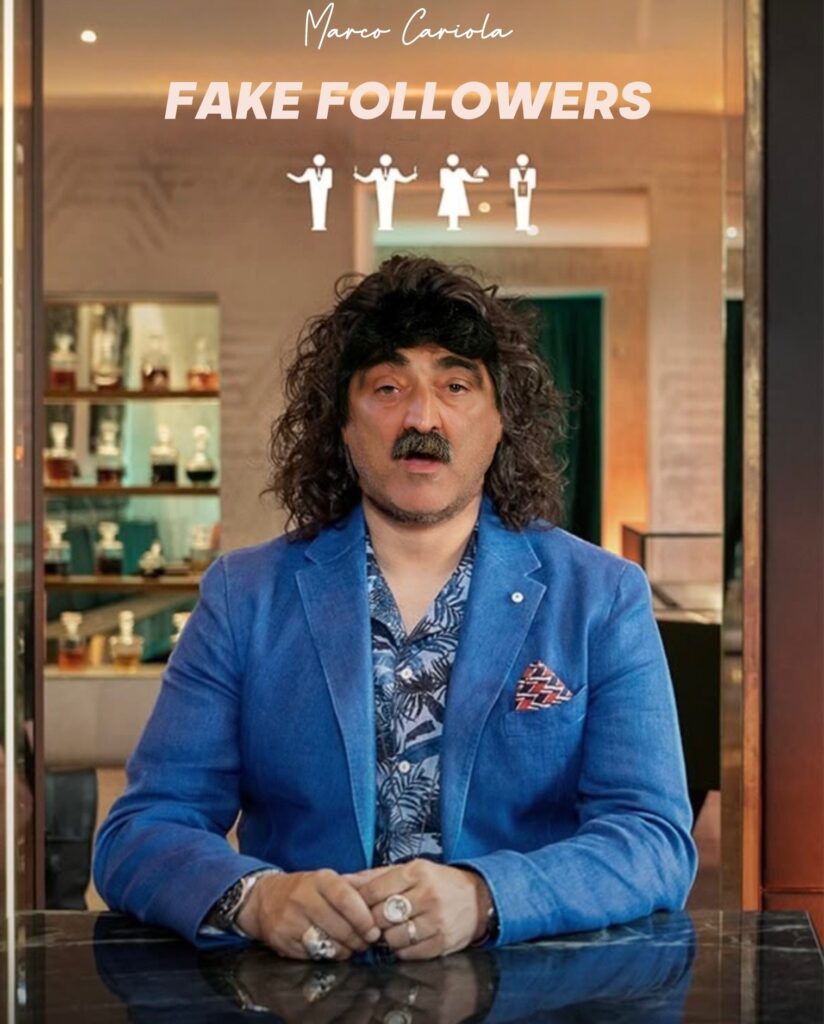
E poi c’è da dire una cosa: spesso le “bufale” più grandi non sono nemmeno nascoste. Sono lì, sotto gli occhi di tutti. Ma le abbiamo normalizzate. E allora ridicolizzarle diventa un modo per romperle, per svuotarle di potere. È satira.
Adesso immagina di essere un demiurgo e, come un Deus Ex Machina, avere un’enorme panoramica del mondo musicale di oggi, potendo influire cancellando, creando e modificando elementi. Tu cosa faresti?
Se avessi davvero una visione globale e il potere di modificare il mondo musicale come un Deus Ex Machina… penso che inizierei col rimettere le cose al loro posto. Restituirei alla musica il suo ruolo centrale, togliendolo a tutto quello che oggi le ruota attorno ma spesso la soffoca: l’apparenza, la sovraesposizione, la performance social continua.
Cancellerei l’ossessione per l’immagine e per i numeri. Via i set pre-registrati, via i DJ scelti solo perché “funzionano” su Instagram. Fuori dal palco chi non ha nulla da dire artisticamente, ma continua a riempire club solo perché alimenta una narrazione efficace. Il talento deve tornare a contare più della strategia.
leggi anche: “Paula Temple e l’Hard Techno: un mondo di ‘performer influencer'”
Creerei un ecosistema più onesto: dove il valore viene riconosciuto con lentezza, dove si può sbagliare, crescere, cambiare idea, senza essere tagliati fuori. Dove il club torna a essere un luogo di ascolto, di scoperta, di immersione — e non solo una vetrina per far vedere che c’eri. Meno stories, più storie vere.
Modificherei anche la mentalità del pubblico, se potessi. Vorrei che le persone tornassero a chiedersi perché vanno a un evento. Per la musica? Per l’artista? Per l’esperienza? Per vedere un videomaker? O solo per dire “io c’ero”? Se tutti iniziassimo a pretendere un po’ di autenticità in più, forse anche l’offerta si alzerebbe di livello.
E infine, da demiurgo, credo che cercherei di ridare dignità al silenzio. In un mondo che urla costantemente per attirare attenzione, ricordare che anche l’ascolto — quello vero — è un atto rivoluzionario. E che la musica, quando è fatta con amore e sincerità, non ha bisogno di effetti speciali. Basta lasciarla parlare.
Siamo giunti alla fine, e come di consuetudine in questo tipo di intervista ti lasciamo una spazio bianco, nel quale puoi condividere con noi una tua istanza, un’idea o un tuo pensiero in libertà.
Io non voglio insegnare niente a nessuno, non mi interessa salire in cattedra. Mi interessa solo continuare a raccontare quello che vedo, con ironia, con sarcasmo, ma anche con affetto per un mondo che, nonostante tutto, amo profondamente.
E magari, un giorno, riuscire a portare queste chiacchiere fuori da Instagram — in un podcast, in un format, in qualcosa di diverso. Dove si possa ridere, criticare, raccontare, ricordare.
Colgo l’occasione per ringraziare RIN per lo spazio che mi concede ogni settimana in Radio: è una piccola estensione di tutto questo. Un luogo dove provo a coinvolgere artisti — conosciuti e non — attraverso la loro musica.
Per noi è stato un piacere, ti ringraziamo della disponibilità. Ciao Marco!
Il piacere è stato mio, davvero. Grazie a voi per lo spazio, l’ascolto e per le domande mai banali.
(*Le immagini qui riportate sono state fornite da Marco Cariola stesso come testimonianza del proprio stile ironico, satirico e provocatorio.)
Intervista a cura di Nicola Raponi e Lorenzo Giudice
ENGLISH VERSION
Interview with Marco Cariola
Ciao Marco, or whoever you, or you all, may be. Welcome to Parkett. First of all: how are you?
Hello! First of all, thank you so much for the invitation — it’s a pleasure to be here. This is absolutely my first interview, so I’m doubly happy that it’s happening right here with Parkett. It’s a surprise, in a beautiful and complete way: I didn’t expect it, but I’m happy to be able to tell my story in this context.
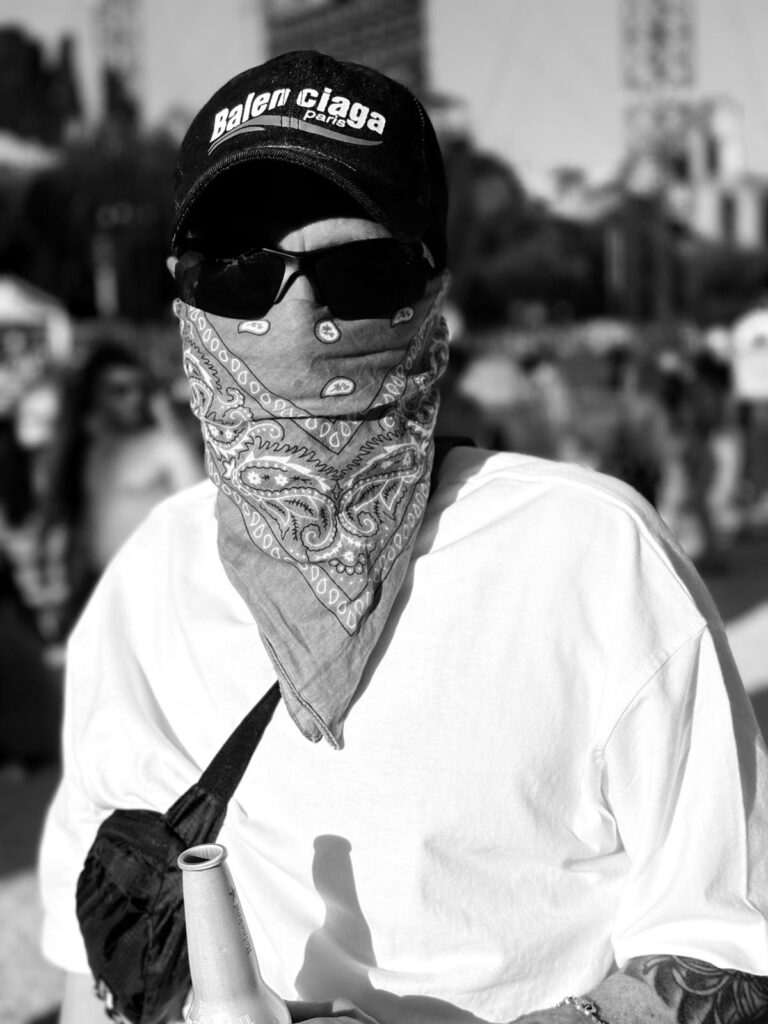
Tell us a bit about this idea. How was Marco Cariola born? When did the spark ignite that started the engine?
Marco Cariola was born a bit by chance, a bit by instinct, but also out of necessity. The real beginning dates back to the first pandemic period: there was free time and a great need for lightness. At first, the project had another name, it was more a game than anything else. I enjoyed modifying the audio of some DJ performance videos found on YouTube. The final result was often hilarious.
I started publishing these videos on Facebook: that’s where the idea truly originated. The Instagram page only came years later, when I realized the project was taking a more defined direction and deserved a dedicated space there too.
Throughout all these years, I’ve always done everything by myself: from finding the content to audio and video modifications. It’s a handcrafted job, but precisely because of that, it represents me 100%. Over time, a beautiful relationship has developed between me and my followers. So much so that today, quite often, it’s the followers themselves who send me material: videos, ideas, tidbits to re-elaborate and publish. It has become a form of spontaneous collaboration, almost a community that enjoys unmasking, laughing, and reflecting together.
Among these followers, for about the last three months, there’s been a guy who particularly caught my attention. Not only for the content he sent me, but because he already modified them in perfect “Cariola” style, with the same irony, the same madness, the same sharp spirit that distinguishes the page. It all felt very natural, spontaneous: that’s how he became part of the project.
So today I can say I’m no longer alone in this. And it’s wonderful to see how a genuine collaboration, made of shared intuition and a desire to have fun while staying true to a certain vision, can emerge from a simple page.
Oh, I’ll also tell you a funny episode right from the beginning. It was the period when clubs were closed, you couldn’t dance, the atmosphere was surreal. So, as a joke, I created a flyer for a phantom party at an Autogrill for New Year’s Eve 2020, complete with a Facebook event. I included real DJ names alongside completely invented ones — some were trash TV personalities.
Don’t ask me how, but that event went viral. Thousands of people clicked “Attending” and started sharing it everywhere. The absurd thing is that even real PR groups wrote to me asking how to work at the event, how to join the staff. So many hadn’t realized it was all made up. That’s when I understood the potential of satire in our environment… and how, sometimes, reality outdoes fiction!
What motivates you most of all? Is there a precise objective behind this type of communication, or is it a project born out of passion and a desire to have fun?
The biggest motivation, in reality, is very simple: it entertains me. But above all, it stems from an immense passion for electronic music and for clubbing — the real kind, though. The kind made of sound, sweat, dim lights, and genuine shared experiences. It’s a world that shaped me, inspired me, and made me feel part of something.
This project was born this way, without grand strategies, without long-term plans. At first, there was only the desire to play, to experiment, to unleash certain ideas I’d had in my head for a long time that couldn’t find a “serious” space to exist.
Then, along the way, I realized that this direct, ironic, and sometimes paradoxical language truly managed to communicate with people. It’s not just entertainment: it’s also a way to say true things, unfiltered, but with lightness. And this, in my opinion, is something that’s a bit missing today — the freedom to say something uncomfortable without taking yourself too seriously.
And I’ll tell you something, I get emotional, and I’m not kidding. Often I find myself talking to artists I’ve followed my whole life, whom I deeply respect, and with whom, thanks to this page, I’m fortunate enough to interact. They support me, they send me Wetransfer with their EPs, and I send them a photo of their vinyl that I’ve had at home for years. It’s surreal, but beautiful.
Sometimes I’m on the phone, maybe with one of them, and my eyes are watering. My partner looks at me and asks: “What are you doing? Are you normal?” And I smile, because deep down maybe not, maybe I’m not entirely normal. But that’s okay.
So yes, it was born out of passion and a desire to have fun, but today I also see a deeper value in it. I don’t have a “precise objective” in the classic sense, but if I manage to make someone smile, or make them say, “Oh, he said it!“, then I know it makes sense to continue.
Is there also a desire to raise awareness among a certain part of the audience with your content?
Yes, definitely. Although everything stems from fun and a love for music, there’s also a deeper desire: to try and raise awareness among a certain part of the audience. I don’t want to moralize anyone, but I like the idea of being able to switch on a light, make people think, even if only for a few seconds, those who watch or listen.
With Marco Cariola, I try to highlight certain dynamics of the clubbing and electronic music world — situations that are a bit grotesque — with irony but also with an underlying truth. And often I realize that many people recognize themselves in what I say, or at least grasp the message behind the laughter.
So yes, I’m interested in entertaining, but I’m also interested in stimulating a certain awareness.
What aspect of the degenerations you describe bothers you the most? The picture you’re painting isn’t the best; in fact, it’s merciless. But is there anything you simply can’t stand?
Look, more than bothering me, it makes me sad. Because the world of clubbing — the real kind, as we said before — is a wonderful thing. It’s culture, it’s freedom, it’s sharing. But today, unfortunately, it’s increasingly becoming a caricature of itself.
What I truly can’t stand is forced spectacularization. Clubbing reduced to a display window, to content to post, to an outfit meticulously planned down to the last detail, but with zero attention to the music. When I see a DJ more concerned with filming a video than making a sound system sound good, or an audience there just to be seen and not truly experience the moment… that’s when the magic breaks.
It angers me to see that those who truly deserve it, who have talent, musical culture, passion, and technical skills, often remain on the sidelines or even just watching. While others, with no talent or substance, play gigs around the world and rake in insane amounts of money. It’s a total distortion of value.
And then there’s one thing that’s absolutely unbearable for me: performers who play pre-recorded sets. It’s a synonym for incompetence, full stop. It’s a lack of respect towards the audience and towards those who, on the other hand, struggle every night to truly play, to improvise, take risks, make mistakes. Because that’s where the truth of music lies.
I can’t not mention the whole issue of fake followers, careers built on false numbers, inflated metrics, images meticulously crafted for show. It’s all smoke and mirrors. And ultimately, the audience suffers, but so does the system in general: if we keep rewarding appearance over substance, then we shouldn’t be surprised if we find ourselves surrounded by emptiness.
And I’ll add: I’m really annoyed by this new wave of remixes of Italian songs in an Afro house style. Senseless, often embarrassing. The same goes for the rampant trend of self-promotion videos where people pretend to play on switched-off mixers, without even a cable connected. It’s an insult to human intelligence.
The problem is that many new generations see this content and think this is the right way to get known. So they imitate everything, without even understanding what they’re replicating. Not long ago, I argued with a DJ, quite well-known too, precisely for this reason. He justified himself by saying: “Well, that’s how it works now. I make the video in a nice location, with the console off, hoping the content goes viral and also boosts my release.” He claimed it was a management decision.
Hmm… if we have to sacrifice credibility on the altar of the algorithm, then something is really wrong.
But be careful: there is some good, a lot of it fortunately. In Italy, there are still many realities that truly deserve recognition. Made up of passionate young people, with taste, musical culture, a desire for research. Who work hard to do things well, invite guests for the music they propose and not for their number of followers. There are small clubs that carry on the true essence of this world, thoughtfully, without spending insane amounts, but with a lot of vision. Even in Ibiza, some good things persist. Little, but it’s there.
According to you, roughly speaking, when and why did the world of electronic music take this turn?
It’s hard to pinpoint an exact moment, but in my opinion, the breaking point came when electronic music — and clubbing with it — started to become a global phenomenon to be sold rather than to be lived. When festivals exploded, social media took over, and image began to matter more than sound. From there, something broke.
If I had to indicate a period, I would definitely say right after Covid. That forced pause changed everything. After months of silence, there was a frantic rush to restart, and many tried to regain visibility, gigs, numbers, money. In that chaos, substance took a back seat. The urgency became “being there,” appearing, reclaiming a spot — even at the cost of forcing, simplifying, emptying.
Once, electronic music was a niche, a language for a few, often even a cultural or political act. Today, in many cases, it has become fast-consumption entertainment, where value is measured in likes, views, and exaggerated fees.
Why? Because, as always, when something starts to “work,” investments arrive, brands, people who sniff out a good deal. And inevitably, some of the authenticity gets lost. There’s still a lot of quality out there, fortunately, but you have to go look for it, dig beneath the surface.
Moreover, with social media, everything has sped up and simplified: today you can seem like an artist even before you are one. All it takes is a couple of well-made photos, two expertly edited pieces of content, and a handful of bought followers. And unfortunately, the public often stops there, at the image.
That’s where, in my opinion, clubbing started to lose something fundamental: mystery, research, the value of the real moment. Fortunately, there are still those who resist, who build, who believe. And that’s also why Marco Cariola exists — to keep that flame alive, even by poking fun at excesses and distortions, but with the intention of remembering where we come from.
But how much do social networks, and their massive and indiscriminate use, influence this situation?
Social networks influence it enormously, perhaps more than any other factor. They have become the main stage, more than the dancefloor itself. Today, artistic identity is often built first on social media and then — perhaps — in the music. And this inversion is dangerous.
Their massive and indiscriminate use has transformed electronic music into a product to be scrolled through, rather than listened to or experienced. Everything has to be short, immediate, “Instagrammable.” Attention has shifted from the content to the container: it doesn’t matter what you play, but how you present it visually. And so, image, posing, and persona win, even if there’s little or nothing behind them.
There’s a constant race for content, for visibility, for positioning. A DJ today can get known (and even work) simply thanks to well-crafted communication, even if they’ve never played in front of a real audience. And conversely, very talented artists who aren’t very “social” risk disappearing or remaining invisible. It’s a huge distortion.
Let me be clear: social media aren’t inherently evil; on the contrary, if used well, they can be a powerful tool. But it requires balance, vision, and above all, substance behind the form. And unfortunately, today, that substance is thinning out more and more.
With Marco Cariola, I also try to point the finger (always with a smile) at these mechanisms. Because if we don’t learn to laugh at certain exaggerations, we risk taking them seriously.
Indeed, yours, besides being a kind of “investigative” activity, is also a bit of a debunking activity against enormous hoaxes, kind of like saying “Hey, this isn’t music, this is acting a part.” Do you agree?
Yes, I absolutely agree. In fact, what I do has an ironic “investigative” side, but also a bit of daily debunking. I try to expose certain fictions that are now passed off as normal. It’s kind of like saying: “Hey guys, look, this stuff isn’t music, it’s a performance. We’re just playing a part here.”
The problem is that many people, especially those who are new to the world of clubbing or electronic music, don’t have the tools to distinguish between what’s authentic and what’s fabricated. And so yes, I like the idea of being a “voice from the wilderness,” even if in a grotesque, ironic way, never with the intent to destroy — rather, to open eyes.
Marco Cariola, precisely because he’s a fictional character, can afford to say certain things directly, without filters. He’s a bit like a distorting mirror that, in the end, reflects a very real truth. If someone watches one of my videos and pauses for a moment to think “is it really like this?”, for me, that’s a small victory.
And then there’s something else to say: often the biggest “hoaxes” aren’t even hidden. They’re right there, for everyone to see. But we’ve normalized them. And so, ridiculing them becomes a way to break them, to strip them of their power. It’s satire.
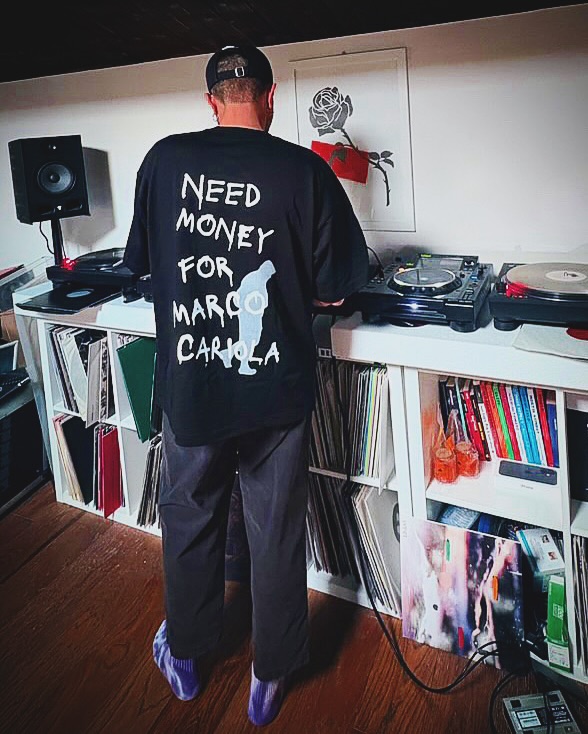
Now imagine you are a demiurge and, like a Deus Ex Machina, you have an enormous overview of today’s music world, being able to influence by deleting, creating, and modifying elements. What would you do?
If I really had a global vision and the power to modify the music world like a Deus Ex Machina… I think I’d start by putting things back in their place. I’d restore music to its central role, taking it away from everything that now revolves around it but often suffocates it: appearance, overexposure, continuous social performance.
I’d delete the obsession with image and numbers. Out with pre-recorded sets, out with DJs chosen only because they “work” on Instagram. Off the stage with those who have nothing artistic to say but keep filling clubs just because they fuel an effective narrative. Talent must once again matter more than strategy.
I’d create a more honest ecosystem: where value is recognized slowly, where one can make mistakes, grow, change their mind, without being cut off. Where the club returns to being a place of listening, discovery, immersion — and not just a showcase to show you were there. Fewer stories, more true stories.
I’d also change the audience’s mindset, if I could. I’d want people to start asking themselves why they go to an event. For the music? For the artist? For the experience? To see a videographer? Or just to say “I was there”? If we all started to demand a bit more authenticity, perhaps the offerings would also improve.
And finally, as a demiurge, I believe I would try to restore dignity to silence. In a world that constantly screams for attention, remembering that true listening is also a revolutionary act. And that music, when made with love and sincerity, doesn’t need special effects. Just let it speak.
We have reached the end, and as is customary in this type of interview, we leave you a blank space where you can share with us an instance, an idea, or a thought of yours freely.
I don’t want to teach anyone anything; I’m not interested in lecturing. I’m only interested in continuing to tell what I see, with irony, with sarcasm, but also with affection for a world that, despite everything, I deeply love. And perhaps, one day, succeed in taking these chats outside of Instagram — into a podcast, into a format, into something different. Where we can laugh, criticize, tell stories, remember.
I take this opportunity to thank RIN for the space they grant me every week on the radio: it’s a small extension of all this. A place where I try to involve artists — well-known and not — through their music.
It has been a pleasure for us, thank you for your availability. Goodbye Marco!
The pleasure was mine, truly. Thank you for the space, the listening, and for the questions that were never trivial.
(*The images shown here were provided by Marco Cariola himself as evidence of his ironic, satirical and provocative style.)
Interview by Nicola Raponi and Lorenzo Giudice

